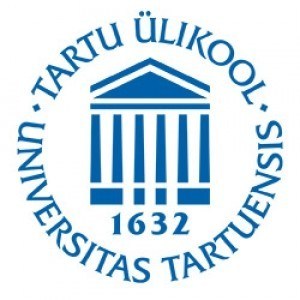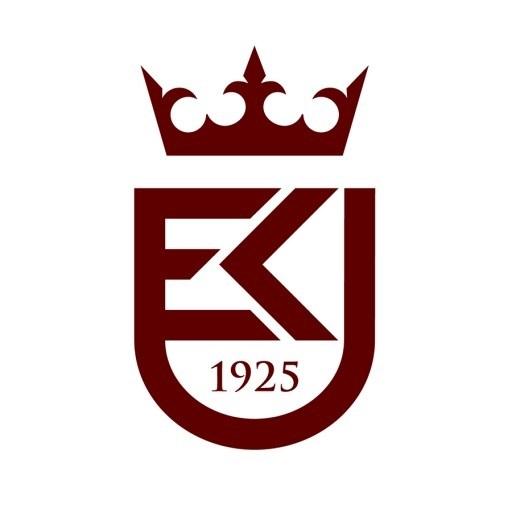Photos of university / #unitartu
Baltic Sea Region Studies at the University of Tartu offers a comprehensive interdisciplinary programme designed to provide students with a deep understanding of the historical, political, economic, and cultural dynamics that shape the Baltic Sea area. The programme aims to equip students with analytical skills and regional knowledge necessary to navigate and contribute to various sectors including policy development, international relations, economic development, and cultural diplomacy within this strategically important geographic zone. Throughout the course of studies, students explore topics such as regional cooperation, environmental challenges, security issues, and the socio-economic development of Baltic states, as well as their interconnections with broader European and global trends. The curriculum incorporates lectures, seminars, and practical projects that foster critical thinking, regional awareness, and cross-cultural communication skills. Students benefit from expert faculty who are specialists in Baltic history, politics, and economics, and they have opportunities for internships and research projects focused on regional issues. The programme promotes an international and multicultural learning environment, encouraging students to engage with issues from diverse perspectives. Graduates of Baltic Sea Region Studies are well-prepared for careers in governmental agencies, international organizations, NGOs, research institutes, and private sector companies operating in or with the Baltic region. They develop a strong foundation in regional analysis, foreign policy, and intercultural competence, making them valuable contributors to regional development and cooperation initiatives. The University of Tartu's Baltic Sea Region Studies programme is ideal for students interested in regional integration, environmental sustainability, and strategic collaboration within the Baltic area and beyond.
Bachelor's Degree in Baltic Sea Region Studies at the University of Tartu offers students a comprehensive understanding of the historical, political, economic, environmental, and cultural aspects of the Baltic Sea region. The programme is designed to provide students with interdisciplinary knowledge and skills necessary to analyze regional development processes, regional integration, and cooperation among Baltic Sea countries. Throughout the studies, students will explore the historical context that shaped the region, examine contemporary political and governance issues, and assess economic trends and challenges faced by the countries bordering the Baltic Sea. The curriculum also emphasizes environmental concerns, including marine ecology, climate change impacts, and sustainable development strategies aimed at preserving the unique Baltic Sea ecosystem.
Students will acquire language skills and learn about the diverse cultures, traditions, and societal structures of the region, fostering intercultural understanding and effective communication. The programme combines theoretical courses with practical training, encouraging students to undertake internships, participate in regional projects, and engage with local communities and organizations. This experiential learning approach ensures graduates are well-equipped for careers in regional policy analysis, international relations, environmental management, tourism, and other fields related to the Baltic Sea region.
The interdisciplinary nature of the programme, along with dedicated research seminars and opportunities for international exchange, provides a stimulating environment for students to develop critical thinking, research competencies, and a global perspective. Graduates of Baltic Sea Region Studies at the University of Tartu will be prepared to contribute to regional development, fostering cooperation and sustainable growth within the Baltic Sea area and beyond.
Admission to the Baltic Sea Region Studies master's program at the University of Tartu requires applicants to hold a bachelor’s degree or equivalent from an accredited university. Candidates must submit their academic transcripts, demonstrating a solid foundation in social sciences, international relations, or related fields. Proficiency in English must be proven through standardized tests such as IELTS (minimum score of 6.5) or TOEFL (minimum score of 92 internet-based test). Additionally, applicants are expected to provide a motivation letter outlining their interest in Baltic Sea Region issues and how the program aligns with their academic and professional goals. Letters of recommendation from academic or professional referees are also required to attest to the applicant's suitability for postgraduate studies.
The selection process considers academic performance, relevant work experience, language proficiency, and motivation. Candidates may be asked to participate in an interview, either in person or online, as part of the admissions assessment. To facilitate the application process, applicants must complete an online application form via the university's admissions portal and pay the relevant application fee. The program encourages applications from international students and prioritizes diversity and interdisciplinary approaches to regional studies.
Academic prerequisites include a Bachelor's degree with a focus on political science, international relations, regional studies, or related disciplines. Prior coursework in European integration, political science, or Baltic Sea region history will be considered an advantage. The program aims to admit students who demonstrate academic curiosity, analytical skills, and a genuine interest in regional cooperation, security, and cultural exchange in the Baltic Sea area. Successful applicants should prepare to engage in intensive studies, participatory learning methods, and research projects during their candidature. To ensure a comprehensive educational experience, applicants are advised to review the specific prerequisites and criteria outlined on the University of Tartu’s official program page and to contact the admissions office for any clarifications or additional requirements.
The financing of the Baltic Sea Region Studies program at the University of Tartu primarily relies on a combination of state funding, student tuition fees, and occasional external grants or scholarships. As a public university in Estonia, the University of Tartu receives significant financial support from the Estonian government, which allocates funds to support a broad range of academic programs aimed at fostering regional development, international cooperation, and specialized research in areas such as Baltic Sea regional issues.
Tuition fees for international students vary depending on their nationality and residency status, but for degree programmes conducted in English, the fees are generally structured to be competitive within the European higher education landscape. Residents of Estonia benefit from subsidized tuition fees, often paying significantly less than international students. For those enrolled in the Baltic Sea Region Studies program, the annual tuition fee is set in accordance with the university’s standard fee schedule for master's level studies, with potential discounts or exemptions available for certain categories of students, such as those with scholarships or institutional grants.
The University of Tartu actively participates in European Union funding programs, which support doctoral and master’s level research initiatives related to regional studies, cooperation projects, and mobility grants. These external sources provide additional financial support to students engaging in research, internships, or fieldwork pertinent to Baltic Sea regional issues. A notable example is participation in the Erasmus+ program, which funds student exchange opportunities within partner universities across Europe, thereby reducing the financial burden on students seeking international experience.
Moreover, numerous scholarship opportunities are available for outstanding students, including university-specific scholarships, national scholarships provided by Estonian state institutions, and international grants aimed at promoting regional cooperation studies. These scholarships may cover tuition fees entirely or partially, provide living allowances, and support international travel or conference attendance.
The university also encourages students to seek part-time work opportunities in Tallinn, the city hosting the University of Tartu, or within the wider Baltic Sea region, which can help offset living costs and enhance practical experience related to regional studies. Furthermore, some students may qualify for research stipends if involved in thesis work or project-based research associated with Baltic Sea regional issues, supported by faculty grants or external research projects.
In summary, the financing of the Baltic Sea Region Studies program is diversely sourced, combining institutional support, student contributions, external research grants, and scholarships to ensure that students can pursue their academic goals within a financially sustainable framework. The university’s structured approach aims to make regional, international, and intercultural education accessible to a broad range of students, thereby fostering the development of experts equipped to address regional challenges and promote cooperation within the Baltic Sea area.
Baltic Sea Region Studies at the University of Tartu is an interdisciplinary master's program designed to provide students with a comprehensive understanding of the social, political, economic, and environmental issues facing the Baltic Sea region. This program aims to cultivate specialists who are knowledgeable about the historical development, current dynamics, and future challenges of the Baltic Sea area, fostering a multidisciplinary perspective that combines insights from political science, environmental studies, international relations, and regional development.
Students in this program have the opportunity to analyze regional cooperation initiatives, environmental policies, and geopolitical developments, gaining skills in policy analysis, research methods, and intercultural communication. The curriculum includes core courses in Baltic Sea politics, sustainable development, regional integration, and conflict resolution. Additionally, students can choose from a variety of elective courses tailored to their specific interests, such as maritime security, cultural heritage, or economic development in the region.
The program emphasizes experiential learning through case studies, field trips, and project work, often involving collaboration with regional institutions and organizations. Graduates are equipped to work in international organizations, governmental agencies, NGOs, research institutes, or pursue doctoral studies related to the Baltic Sea region. The program's language of instruction is primarily English, attracting students from various countries, which enhances the multicultural learning environment and fosters international networking.
The University of Tartu, being situated in Estonia, provides an ideal setting for studying the Baltic Sea region, with access to the region's diverse cultural, political, and ecological landscapes. The program benefits from the university’s strong regional partnerships, including cooperation with Baltic Sea states and regional organizations, which enriches students' practical understanding and professional prospects. Overall, Baltic Sea Region Studies at the University of Tartu is an excellent choice for those interested in regional politics, sustainable development, and international cooperation within this strategically significant and environmentally sensitive part of Europe.










